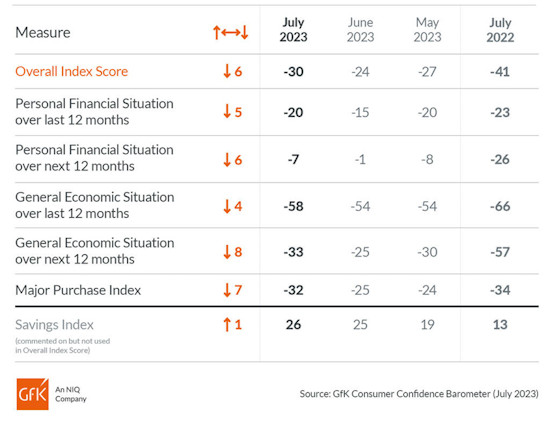Retail sales in the UK grew faster than expected in June as the hot weather prompted a rebound in food sales and demand for outdoor goods.
Official figures from the Office for National Statistics (ONS) show retail sales volumes rose 0.7% month-on-month, much higher than average analyst forecasts of a 0.2% increase and better than the 0.1% rise in May. Despite the inflation squeeze on consumers’ spending power, most retailers reported that purchases were up after the previous month was impacted by the coronation of King Charles.
Sales volumes in food stores bounced back with 0.7% growth, following a fall of 0.4% in May, with supermarkets saying that the good weather and promotions had helped lift demand.
Non-food stores saw sales increase 1.0% in June, following a fall of 0.5% the previous month. Department stores and furniture retailers reported that summer sales and increased footfall helped boost volumes.
The ONS chief economist, Grant Fitzner, said: “Retail sales grew strongly, with food sales bouncing back from the effects of the extra bank holiday, partly helped by good weather, and department stores and furniture shops also having a strong month.
“However, these were partially offset by falls in fuel, garden centres and clothes shops. Growth still fell on an annual basis, but at its slowest rate since the beginning of the Ukraine war.”
Separate data released by GfK today showed that consumer confidence fell in July for the first time since January as continued cost of living pressures and recent hikes in interest rates started to take their toll.
The overall index score on the Consumer Confidence Barometer dropped six points to -30 in July, with all measures declining on last month.

Despite the headwinds of the cost-of-living crisis, consumer confidence had been steadily rising for six months. However, it is now back at the same level that it was in April after resilience to growing cost pressures collapsed.
“The recent fall in headline inflation will do little to improve the financial mood; consumers need to see falling prices and interest rates before that happens,” said Joe Staton, client strategy director at GfK.
“Reality has started to bite, and as people continue to struggle to make ends meet, consumers will pull back from spending.”




